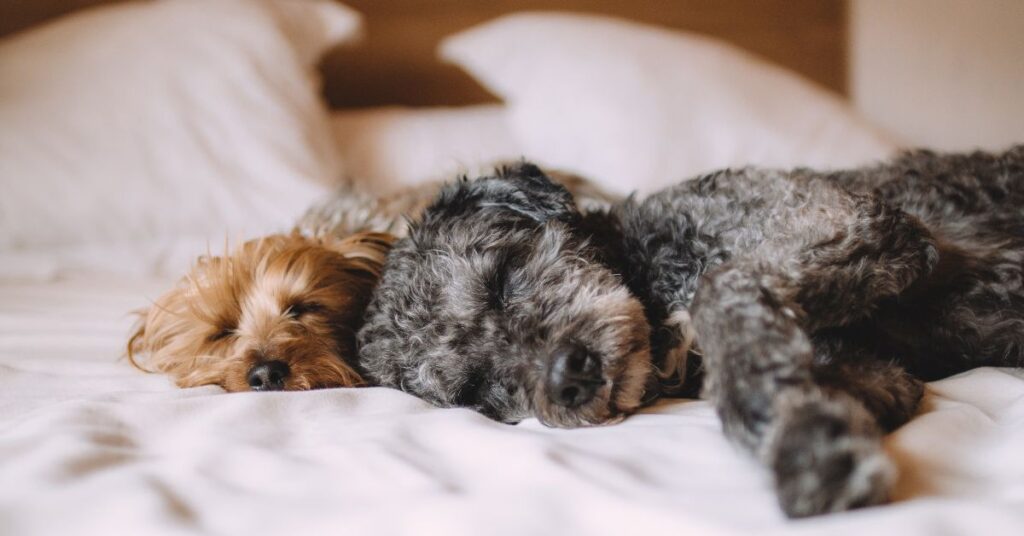By: Bec Harris
Australians love their pets, but sleeping with them could be stealing hours of precious rest every year.
According to a recent survey, one in five Aussies (22%) let a pet sleep in their bed. Of those, 92% are woken at least once a week, and nearly a third are disturbed several times a week. For some, it’s every night. That adds up to an average of 1.3 hours of lost sleep per week or almost 70 hours a year.
“They take over the bed”
Sleep expert Amanda Slinger, admits she’s experienced it herself. “Whenever they are in the bed with us, they take over. We never get the sleep we’d like.”
Pets can wake owners by moving, licking, barking, meowing or simply generating extra heat under the covers. And while these disturbances may not always wake us fully, Amanda warns they can still disrupt deep sleep cycles.
Why lost sleep matters
Even small disturbances can have a ripple effect. “Sleep affects everything, emotional resilience, decision-making, reaction time, even how you communicate,” Amanda explains. “When I haven’t slept well, I’m grumpy and I don’t want to see anyone.”
The upside of sharing your bed
It’s not all bad news. Many people find comfort and reduced anxiety when their pet is close by.
“Sometimes I’ll grab one of my cats for a cuddle to help me get back to sleep,” Amanda says. “They can be hugely comforting.”
The survey also revealed women are more likely than men to share their bed with a pet (27% compared to 16%.) For some, especially those living alone, the presence of a pet offers an extra sense of security.
Tips for better rest with pets
Amanda says the choice to share your bed is personal, but awareness is key. Track your sleep with a wearable device, or simply notice how you feel in the morning. If you’re constantly tired, consider alternatives such as:
- Letting pets join only in the morning for cuddles
- Providing them with a cosy bed nearby
- Creating a calming bedtime routine
And if you do wake during the night, Amanda recommends having a “toolbox” of relaxation aids like a quiet podcast or soft music at low volume to help you drift back off.
Morning habits matter most
Amanda stresses that the best way to protect your sleep isn’t just about bedtime, it starts in the morning.
“Your morning routine is the most important for setting your body clock,” she says.
Her top two “morning anchors” are:
Get sunlight for 15–20 minutes, even on cloudy days.
Wake up at the same time every day, including weekends.
If you need extra rest, try a short afternoon nap instead of sleeping in.
The Takeaway
Sharing your bed with a pet can be comforting, but it may be quietly costing you dozens of hours of rest each year. The key is knowing whether the benefits outweigh the sleep disruptions, and adjusting your habits to get the best of both worlds.
Article supplied with thanks to Sonshine.
Feature image: Canva





